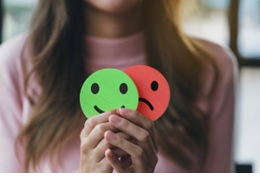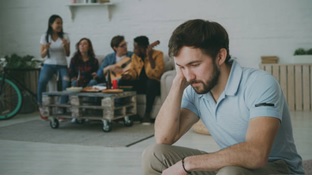Effects of Social Media on Mental Health
 The use of social media significantly impacts mental health. It can enhance connection, increase self-esteem, and improve a sense of belonging. But it can also lead to tremendous stress, pressure to compare oneself to others, and increased sadness and isolation. Mindful use is essential to social media consumption.
Cyber-bullying and online harassment:
Social media platforms can be breeding grounds for cyber-bullying, trolling, and online harassment, which can have a significant impact on a person’s mental well-being.
Increased feelings of loneliness and isolation:
Spending excessive time on social media can lead to feelings of loneliness and isolation, as it often creates a distorted view of other people’s lives and can foster a fear of missing out (FOMO).
The use of social media significantly impacts mental health. It can enhance connection, increase self-esteem, and improve a sense of belonging. But it can also lead to tremendous stress, pressure to compare oneself to others, and increased sadness and isolation. Mindful use is essential to social media consumption.
Cyber-bullying and online harassment:
Social media platforms can be breeding grounds for cyber-bullying, trolling, and online harassment, which can have a significant impact on a person’s mental well-being.
Increased feelings of loneliness and isolation:
Spending excessive time on social media can lead to feelings of loneliness and isolation, as it often creates a distorted view of other people’s lives and can foster a fear of missing out (FOMO).
 Comparison and envy:
Constant exposure to curated and idealized versions of other people’s lives can lead to feelings of inadequacy and envy, as individuals compare their own lives and achievements to those portrayed online.
Negative body image and low self-esteem: Social media platforms are full of images that promote unrealistic beauty standards, which can lead to body dissatisfaction and a decline in self-esteem, especially among young people.
Comparison and envy:
Constant exposure to curated and idealized versions of other people’s lives can lead to feelings of inadequacy and envy, as individuals compare their own lives and achievements to those portrayed online.
Negative body image and low self-esteem: Social media platforms are full of images that promote unrealistic beauty standards, which can lead to body dissatisfaction and a decline in self-esteem, especially among young people.
 Distorted sense of reality:
Social media can create a skewed perception of reality, as individuals often curate their online presence to present themselves in the best possible light, leading to discontentment with real-life experiences.
Decreased productivity and concentration:
Constantly checking social media feeds and notifications can lead to decreased productivity, difficulty concentrating, and negatively impact academic or professional performance.
Sleep disturbances: The use of social media before bed can disrupt normal sleep patterns and contribute to sleep disturbances, which can negatively affect mental health in the long term.
Increased anxiety and depression:
Studies have linked excessive social media use to higher levels of anxiety and depression symptoms, possibly due to the constant exposure to stressors, negative news, and cyber-bullying.
Distorted sense of reality:
Social media can create a skewed perception of reality, as individuals often curate their online presence to present themselves in the best possible light, leading to discontentment with real-life experiences.
Decreased productivity and concentration:
Constantly checking social media feeds and notifications can lead to decreased productivity, difficulty concentrating, and negatively impact academic or professional performance.
Sleep disturbances: The use of social media before bed can disrupt normal sleep patterns and contribute to sleep disturbances, which can negatively affect mental health in the long term.
Increased anxiety and depression:
Studies have linked excessive social media use to higher levels of anxiety and depression symptoms, possibly due to the constant exposure to stressors, negative news, and cyber-bullying.
Addiction and compulsive behavior: Social media platforms are designed to be addictive, leading to excessive use and a pattern of constantly checking notifications, resulting in high levels of stress, anxiety, and dependency. Impact on offline relationships: Spending too much time on social media can distract individuals from cultivating and nurturing real-life relationships, leading to a decrease in social support and increased feelings of loneliness.
